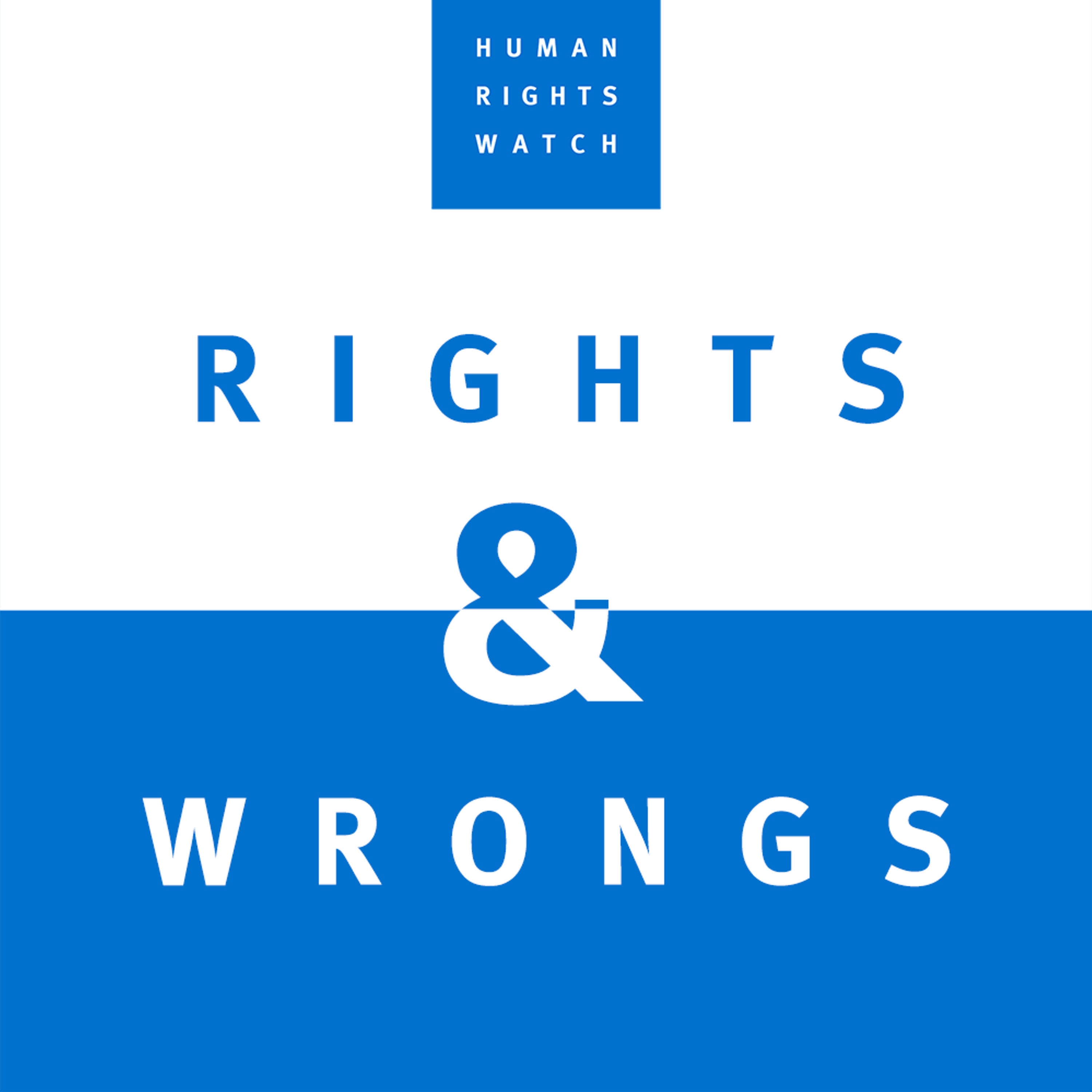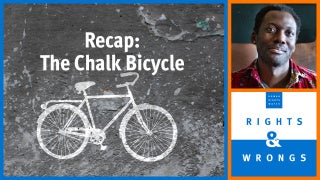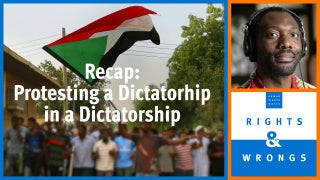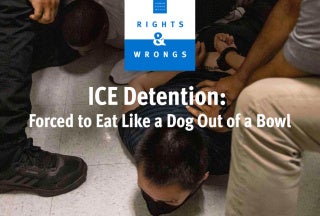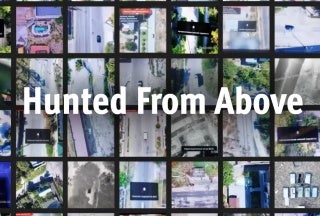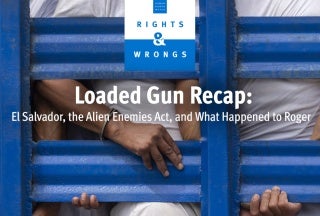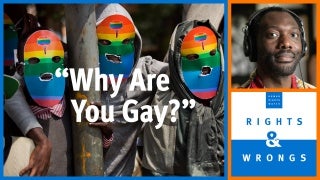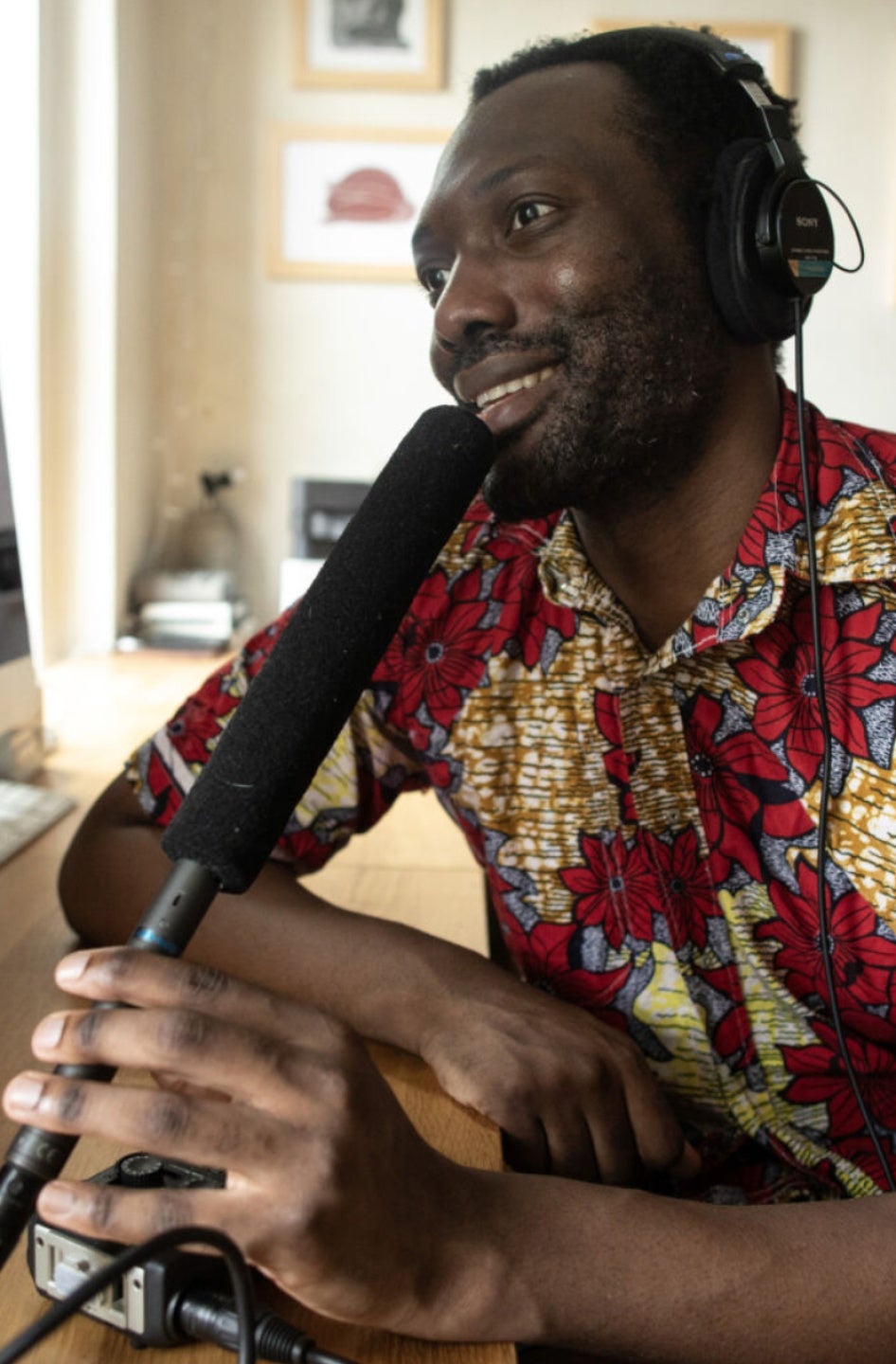Host: Hello hello hello. This is Rights and Wrongs. This week: the Texture of Progress for LGBT Rights, told by three men who’ve been working on it for decades.
Kyle: I'm Kyle Knight. I have been a researcher in the LGBT Rights program at Human Rights Watch for 11 years.
Déde: I'm Dédé Otomo. I am, uh, queer activists with Guya Nusantara in Suraya, Indonesia.
Phillip: My name is Philip Ayoub and I am a political scientist. I teach at University College of London. I spent most of my career looking at LGBT rights movements and how they can be effective and, and also asking why are they effective in some countries and not in others.
Host: Over the past 20 years, the rights of LGBT folks have expanded in a ton of ways, all over the world.
Kyle: 20 years ago, the world was a very different place for LGBT rights. You know, 20 years ago we only had a couple countries who legally recognized same sex couples, and now we have dozens. 20 years ago we had over 90 countries that considered adult consensual same sex conduct a crime, and we're now down to 62 or so. 20 years ago there were zero countries in the world that allowed transgender people to change their legal gender. And we now have 20. So it was a very, very different environment.
Host: It’s also true that it’s 2025.
ARCHIVAL/France 24: A constitutional amendment passed in the Hungarian parliament on Monday codifies a ban on LGBTQ events…
ARCHIVAL/NPR: … to make sure that homosexuals have no space in Uganda …
ARCHIVAL/NBC: The Trump administration can force people to ID themselves on their passports based on their sex at birth …
ARCHIVAL/Africa News: Burkina Faso's ruling military junta has passed a law criminalizing homosexuality and making it punishable with up to 5 years in prison
ARCHIVAL/Reuters: Russia's top court has ruled that lgbtq activists should be designated as extremists …
ARCHIVAL/ABC: … New laws that ban sex outside of marriage, for citizens and foreigners alike …
[beat]
Host: That last clip refers to Indonesia, where in January 2026, a new criminal code provision goes into effect, criminalizing any sexual relations except between or outside of a husband and wife.
You’re listening to Rights and Wrongs by Human Rights Watch. I’m Ngofeen Mputubwele. I’m a radio producer and a lawyer. Human Rights Watch asked me to look at the human rights hotspots around the world, through the eyes and ears of people on the frontlines of history.
Kyle, United States.
Ngofeen: I'm going to assume you were doing something sort of LBTQ, human rights-esque Pre-Human Rights Watch in 2015. Is that right?
Kyle: Uh, I actually wasn't, I was working as a journalist. Well, and I guess you could say I, I kind of was, but I, I felt like I was fighting upstream. So as a mainstream reporter, as a bureau chief, as someone writing for sort of general outlets, I remember taking LGBT stories, including really egregious ones, you know, trans people being murdered or something like this. And having my editors say, ‘eh, well it's okay. It's not really a headline, right? It's not really a big deal’. And sort of fighting that fight inside news companies to try to get people to take these issues seriously.
And then in addition to that, I started out, when I first moved to New York City, I volunteered for a suicide prevention hotline targeted to LGBTQ Youth.
And I think through that, um, you know, being trained and spending those hours in a cubicle, picking up a phone for strangers who were in crisis, I started understanding that the texture of progress was a little bit different than even what headlines that I wanted to write as a journalist would tell.
For example, I remember one night, all of a sudden, the phone started ringing like crazy. We're sitting in New York City and the phone started going off the hook and we were like, what? What happened? All that we could tell from the phone numbers that they were, everyone was calling from Iowa , out in the Midwest, and it was a very bizarre thing. You know, we would get a trickle of calls from different states, but certainly not, you know, 50 calls in a night from Iowa.
What had happened was the Iowa Supreme Court, now this is before the US Supreme Court, but the Iowa State Supreme Court had legalized same-sex marriage and all of the sudden all of these gay kids were panicked because all of a sudden the homophobia of their parents came out. I had one kid who called and started saying, look, ‘I, uh, I thought everything was gonna be okay. I thought my parents were like, kind of live and let live, kind of cool. And then when we were watching the nightly news and they announced the Supreme Court had legalized same sex marriage, my father crumpled up his beer can and threw it at the TV and cursed. And I was like, oh, I have to get outta my own house.’
Right? So it was this sort of glimpse at the other side of progress that a really momentous thing happens in one part of the world for queer or trans people is not necessarily going to resonate the same way, and it's not necessarily gonna make everyone's lives better.
It could actually make things pretty bad on the other side of the world really, really quickly. And I think we saw that manifest, including in the case of Indonesia.
Long pause. Sound of chapter transition.
Host: Dédé. Indonesia. Mid- 1970s.
Ngofeen: When did you like, come out to yourself?
Dédé: Oh, to myself, uh, but still thinking that I could change, yeah? I came out in 1974. I was 20.
Host: Dédé Otono is a queer activist in Surabaya, Indonesia
I got tired of, you know, all the depression and everything, you know, and crushes on the wrong guys. So I decided to try to help myself and went to see a shrink, a psychologist, thankfully, no electrodes or anything.
But then this was the seventies, huh? The psychologist sent me to an internist for anatomical inspection. And so the internist says that I have to have a hormone examination, and that could only be done in Jakarta, you know, in the capital.
And my saving was not enough to go to Jakarta. So I had to tell my parents, look, I'm in trouble.
I actually did not really tell them, but I faked a letter from the psychologist and slipped it in the evening paper, as I was giving it to my dad. In the, in the letter from the psychologist, you know, I said this Dédé Oetomo is homosexual. And in my opinion, he needs to do some hormonal tests in Jakarta, so he's, he's under my care and all that.
And I think I had a note on the envelope. ‘We need to talk’. And so I waited in the living room and they came out, my parents and said, ‘okay. Uh, we'll, we'll go to Jakarta and find out what, what we need to do’. So that was how I ca - how I came out to my parents.
Ngofeen: Wait, wait, wait, wait, wait, wait, wait, wait, wait, wait. How did they, how did they react when they came out and they're like, okay, I guess we're going to Jakarta?
Dédé: I think my mother must have shed one tear and then, but, they’re practical people. They said, ‘okay, you and your dad go to Jakarta’. And so we did go to Jakarta. And this is where my dad, uh, should have told me right away. My dad was told by the professor, uh, ‘Mr. Oetomo, there's nothing you can do about your son. He just has to adapt to society’.
Ngofeen: Okay.
Dédé: But he didn't tell me that.
Long pause. Sound of chapter transition.
Host: Kyle. United States.
Ngofeen: … which means you started when? 2015?
Kyle: I started, yeah, in January of 2015.
Ngofeen: What was the world's temperature on LGBT issues in 2015?
Kyle: Wow. So I think we started to see that you could get governments to come together and agree to a statement that said, we believe that violence and discrimination on the basis of sexual orientation and gender identity needs to stop.
But I think in 2015 we also saw some major events that triggered backlash. The biggest one, of course, was when the Supreme Court in the US legalized same-sex marriage in June of that year.
The first project I worked on when I got hired at Human Rights Watch in, in 2015 is about three weeks into my time here, then. I got a notice from one of my colleagues who covered Central Asia saying that the parliament in Kazakhstan was considering a quote unquote gay propaganda bill.
And so in the context of this, remember this is early 2015. We are barely two years out from Vladimir Putin passing his gay propaganda bill in Russia, which sailed through Parliament. It was like one of the most popular bills ever. And basically the law says that if you're going to talk about gay people in public, it has to be negative, right? You can't say anything positive or neutral about gay people or you're committing propaganda and you can be fined and put on trial and stuff like that. And so this was, you know, getting copycatted throughout the sphere of influence of Russia and Kazakhstan being in front of part of the former Soviet Union and Russian speaking country, very influenced by Russian politics.
Um, and it was seen as a way, uh, to, to introduce legislation about an unpopular minority and, you know, puff up your chest and say, look, I'm protecting the country against, you know, the evil gay people or whatever, and, uh, the propaganda that's gonna ruin our children.
And so off I went to Kazakhstan, and this was a huge challenge as a researcher because at the time there were no LGBT organizations in Kazakhstan. They had all been shut down in the previous years under just sort of generalized hostility. And now this law was coming out. And it was a really brutal couple weeks of interviewing people. All the usual things were happening: violence, discrimination, attacks, extortion, everyone wanted to leave. They would do anything to get a visa to go to another country and just get out sort of this hellscape that they were living in. But there was one interview that stuck with me in particular, and it was the very last one I did on the trip.
Host: Dédé. Indonesia. Mid-1970s.
Dédé returns from the hormone exam in Jakarta and in Surabaya, his hometown, his psychologist says they should meet regularly, like every two weeks.
Dédé: He gave me these books on sexuality, sex research, this and that. Uh, let's, let's compare our readings. And so I actually actually exchanged books and stuff and, you know, said, you know, do you have a girlfriend? I said, well, you know, I try to have one.
B ut I also looked for books myself and from my reading, one Time magazine issue, the 1976, the Matlovich issue …
ARCHIVAL/KRONKNITE/CBS: On March 6th, Sergeant Leonard Matlovich disclosed to his supervising officer at Langley Air Force Base in Virginia that he was a homosexual and wanted to stay in the Air Force.
Dédé: And one book on homosexual behavior among males. And those two actually convinced me that there's nothing wrong with me, but I was not brave enough to tell my parents. But I stopped seeing the psychologist.
Kyle: But there was one interview that stuck with me in particular, and it was the very last one I did on the trip. Uh, my flight was leaving that night and there was this woman who had agreed to meet, um, like at a coffee shop in Al Mati. And uh, we went and we sat with her and I was, you know, working with an interpreter 'cause I don't speak Russian and she doesn't speak English. And it was a total upper, which doesn’t happen a lot in this line of work. It was such a cool interview ‘cause all she did was describe how she had figured out how to make a life for herself that was safe and awesome and she was thriving. So she was 24 years old, her partner was 24 years old and they had a kid together, a four year old daughter. She worked at a marketing firm, I think her girlfriend was a lawyer or something, but they had figured out how to make this really solid urban middle-class life for themselves. They lied to their landlord and said they were sisters so they could live together. They lied to the daycare and said that they were cousins and that's how they could both pick up the kid from school. And they just, they just figured out how to like, make everything kind of, kind of function. And I was like, God, this is so nice to hear after a year, after two weeks of listening to stories that I expect and about torture. But it's still just, it was so great and, um. At the end, uh, I said to her, what I say to everyone at the end of these interviews is I said, do you, do you have any questions for me? And you know, I typically get asked, you know, do you have a boyfriend? Or, you know, how tall are you? Or like, whatever. Like, I typically get silly questions. And she said, no, I actually, I have a question for you. And I said, okay. She said, you're American, right? I said, yeah. I said, but you do understand that I'm not here representing the United States. She said, yeah, yeah, I get that. And um, she said. You know, I have a question about American science. And I said, okay.
Déde: In ‘78 I went to Cornell, uh, to, to study …
Host: Cornell has a Center for Indonesian Studies. Dédé went to teach Indonesian.
Dédé: … and I think the first week I already saw flyers from the gay organization on campus but I was, it took me a year and a half before I actually made a call to the organization.
But in the meantime, again, I read more, I read more, and I, you know, finally on Christmas Eve, I think it was, uh, 1979, I came out to, uh, to my best friend from Indonesia who was also studying at Cornell.
But then, you know, that winter inter-session, I came out to just about everyone in a letter, directly.
One of the things that I used to do to, to, to kind of, encourage myself is to put up posters for, you know, gay dances or things like that. And so, you know, a friend of professor would be walking by and said, ‘oh. Yes.’
So I came out more or less the American way, And actually, I even shocked later, one particular Indonesian studies professor, the late Ben Anderson. He was actually, ‘what is this Indonesian doing? This is so un-Indonesian’.
Kyle: And she said, you know, when I go online, um, and look up same-sex parenting, I keep coming across this study from the US that says that the children raised by same-sex parents are, are ruined by this. And we're considering giving our daughter up to an orphanage because we don't wanna ruin her life. And I was stunned.
I was like, and I, the interpreter I was working with, who was an LGBT activist, um, was also kind of taken aback by this. Uh, but I very quickly knew what she was talking about. Um, and what she was talking about was this study that had been published in the early two thousands by a sociologist at the University of Texas named Mark Regnerus, where he had followed a cohort, um, of kids raised by same-sex parents and had found like worse mental health outcomes, um, kids dropping outta school, drug use, all kinds of stuff like that.
And he had published it and this study had been used very successfully to challenge same-sex marriage progress in the US including in the state courts and stuff like that. And then a little bit later, uh, some other sociologists got a hand on his data, ran it again, and it was, it was nonsense. He had to retract it. The journal issued an apology. Mind you, we are sitting in Kazakhstan months before the US Supreme Court legalized his same-sex marriage.
And the fact that the Regnerus study had been essentially nullified a few years prior was the jet fuel that led us to this point in the US. But in the Russian speaking world, it still existed as the truth because the right wing religious groups that translated the study into Russian and other languages and pumped it out into the world to see, look, American science says same sex couples should not raise kids. It's funny, they didn't go and translate the retraction, you know, because they didn't want the retraction to exist in these parts that they didn't serve their political agenda. And here you had this woman who, for all intents and purposes, was one of the most capable people I've ever met, and had fully figured out a life to thrive and let her kid thrive. And she was literally thinking of putting her kid at an orphanage on the basis of this fake news that had come out of the US and had not been appropriately corrected in her language space on the internet. And that sat with me because I thought, well, this is why we need to keep making a fuss.
This is why it's not over. And it's certainly not over when we achieve something for ourselves in one little corner of the world and don't project it out better.
And so a lot of what I carried with me over the following 11 years as I did this work was realizing that the information we put out in the world really matters for that reason. The way we tell these stories really matter. The fact that we put it out in different languages, the fact that we take a lot of attention and putting it out in different formats, getting it into different forms of media, because she was one Google search away from making this enormous decision.
And the fact that we could sit with her and explain through this interpreter that like actually there was a retraction, actually that study's not true, I mean, completely changed how she was going to live her life. And that was just one person. You can imagine this at scale.
Dédé: At first it was like an argument. ‘Come on, you are from Southeast Asia. Why do you need, you know, this gay liberation?’ But finally he actually provided me with readings about, traditional, cultural forms of queer and trans people.
Ngofeen: Can you tell me about the five forms of gender expression?
Dédé: There are, in some of our cultures, there are five genders, for example, they have words for four genders. Men, women, women who become men, and men who become women. And if you for some reason get some kind of revelation from the deities, then uh, you have to have all four gender expressions on you to communicate with the gods or goddesses.
I grew up with queer folk stories. And I read about institutionalized pedophilia in a district in my province, west of Aya where it's all very ritualized. It's search of prowess. The man searching for prowess has to give, you know, maybe two water buffaloes to the parents of the boy. And in the old days, it was a prestigious position to be taken by a powerful man. If you look at from now, it's pedophilia. It's like, it's a no-no.
From historical text, I learned that one of our greatest kings in the 14th century, used to like dancing as a drag queen in front of his ministers. And it’s mentioned in the court annals. So it's very powerful.
Ngofeen: Tell me why it’s powerful.
Déde: Because the powers that be, the ruling powers, they always say, ‘oh, we should maintain our culture, the culture of our ancestors’. So I, you know, people like me would say, look, here's, here's the culture of our ancestor, I'm not the only one. People in Southeast Asia, I'm sure also other places, have actually said, you know, what we get from the West is the homophobia and the transphobia.
Kyle: I think as I started doing this research and I started going to other parts of the world and where my job was literally to sit with queer and trans people and listen to them and ask them questions and understand the texture of their lives, I started understanding also why it was so important that in places like the US, it was important to keep making a fuss.
Host: When we come back, Déde returns to Indonesia in the mid-1980s. He starts to live his queer life and stuff starts to change across the world.
It is the early 1980s and Dede is still at Cornell University in Ithaca, New York.
Déde: After the weekly discussion with gay people at Cornell, a bunch of us went to Common Ground, the only gay disco in Ithaca.
Ngofeen: And can you just describe to me like what a night at Common Ground was like? Like you walk in, are people, people are dancing, people are chatting. What does it…
Dédé: Chatting and drinking and, you know, and I would sometimes run into a professor so and so. I was like, ‘oh, okay.’
Ngofeen: Do you remember any of the music at all?
Dédé: Oh, Donna Summer, Michael Jackson. ‘We are family’. Who is that by?
Ngofeen: Yeah,
Dédé: We are family.
Ngofeen: Sister Sledge.
Dédé: Sister Sledge! I remember, uh, one once I actually had my birthday party there, so I invited everyone! There were about 40 of us, uh, in, in the, in, in the, in the whatever, in in, in the, in the, in the bar.
Ngofeen: You're in your twenties at this point?
Dédé: Yes. I came out when I was 26.
Kyle: So, you know, Indonesia really had this sort of long period of live and let live, right? Uh, in terms of LGBT people, and this is where Déde came up as an activist, and I'm sure he shared some stories or you can, find them memorialized in all kinds of books and stuff, but, you know, it really it really was pretty chill.
Dédé: In 1984, I came back to Indonesia.
Ngofeen: When you come back to Indonesia in the, in like five years after Cornell, are you, is there any like basically an on a range of like, I'm gonna live my open gay life to, oh no. If I say I'm gay, I will die. Where are, where are you on that spectrum?
Dédé: Very out because those days it was acceptable for two men and two women, more so to be, you know, intimate with each other in public. You were just seen as brothers or friends and, and you know, I mean, it's what Western people usually say about, you know, the Middle East and actually in South Asia. If anything, people are kind of reluctant to do that because Oh, then they start thinking, I'm bi gay, or we are lesbian lesbians, things like that. Yeah. So, um, but those days it was very free.
Kyle: It really was pretty chill. But it was, it was there on this like informal social contract that if you guys don't poke your heads up above the radar too much, we are not gonna beat you down. Also, because, you know, pre-colonial, colonial post-colonial, we've never criminalized this population. So we've never had that big cudgel that like so much of the world did.
Host: Dédé and his friends start a gay magazine in the Indonesian language.
Dédé: I was thinking of people like me who are nerds, who stay at home, who is bookish. Not the ones who could actually say hello to everyone in the mall, anyone. I was saying to myself that we will publish a magazine every two months or so because the mainstream media does not publish much that is, uh, neutral or positive about homosexuality and gender diversity and all that.
So, that's the idea. So some translation, some original essays. And I learned from personal ads in the US that, you know, people did write and, you know, ‘I would like to have my ad’ and so it was, uh, we were kind of the precursors of Grindr and Hornet and all that. And then by, by the second issue, people already were contributing articles, and one article was actually the prospect of marriage equality that earlier.
In some places we had bars, like in Jakarta and in Surabaya, I think it was every Thursday night or something, there would be a gay night at the one bar. And so, we were okay.
I think it must have been 1990 or 1991, we were interviewed by National TV and yeah, you know there were some kids who were saying, oh yeah, ‘faggots, faggots’, you know, but we ignored them.
But all our neighbors knew about it. And we were called a legend couple.
Ngofeen: What does that mean?
Dédé: Meaning, well, you know, uh, because we were the first couple to show on TV and did not show any negative feelings. And there were no attacks yet at that time -early nineties.
I was 36.
Ngofeen: Huh. Okay, so then what changes?
Dédé: People date it differently, but I would date it in the late nineties. 1997, for the first time, uh, young Muslim men harassed people in the town square of Jakarta. That was the first time we heard about it. Now, okay. If you're holding hands, you can be harassed also. Yeah. So, this is about gay men.
And then that was 1997. 1998, we got rid of the dictator. We thought we got rid of him. So we were naive in 1999. We thought it was a small meeting, but with the pompous name, you know, a national working meeting. Well, basically 20 organizations meeting in the town of Solo, kind of one hour from Jakarta.
Ngofeen: A working meeting on…?
Dédé: On, on queer issues. We were naive, so we sent press releases to the media and the local Islamic vigilante was looking for me. He said ‘that Dédé, we have to burn him’. We thought, we have more democracy, we could do this. And, well, we were wrong. I had to hide in the hotel where we were about to have the, uh, the national conference, kindly actually moved everyone. Well, everyone - 20 people,- to another hotel and, and didn't tell the vigilantes and myself, they said, ‘well, you should go to a more secluded hotel’.
So I went to a hotel that is, uh, connected to the local palace. So yeah …
Ngofeen: Were you, were you scared? You seem like you were not worried
Dédé: No, I mean, this is me. I'm like that. My partner was - he was actually swearing at me. You know, ‘don't take those calls from the press’. So as I was hiding in that hotel, I was taking calls from the media. Because I knew I was safe.
Ngofeen: Okay. Okay. And then, but there's just also like a local vigilante who's like, we should burn Déde.
Dédé: Yes.
Ngofeen: You see basically you're describing sort of like, okay, initially first thing that you see as a difference is like people are kind of threatening the, like, hangout that you have, and then it's like this conference that you wanna do.
Dédé: After 2000, I'm actually jumping to 2015, which, if you remember the Human Rights Watch manuscript that Kyle worked on, Kyle and Andreas maybe worked on, that's when everyone, ministers, members of Parliament, clerics, they started saying bad things about homosexuality and gender diversity.
Kyle: When the anti LGBT moral panic of 2016 began, right. It was almost exactly six months after the US legalized same-sex marriage and the same-sex marriage conversations were pumping up in Australia too. And it is related in the sense that politicians started exploiting that moment to say like, we need to differentiate ourselves from these white countries that are doing this gay stuff.
As you saw this on, and it unfolded very, very quickly. It started with one tweet that from the Minister of Education saying, I'm not really sure we should have LGBT student groups on campuses. And within like three weeks, it was like a total race to the bottom and the rhetoric unfolded. Everything ranging from the absurd to the apocalyptic. Right. So you had the mayor of Bandung, which is one of the bigger cities outside of Jakarta, at at a seminar for pregnant women, expectant mothers just randomly started giving a speech about Don't feed your kids Instant Noodles, or they’ll turn gay.
And then a few days later, the Minister of Defense who controls the Indonesian military, he said the LGBT movement was worse than dropping a nuclear weapon on Jakarta. And so at that level you started seeing it unfold in this like, just really big ways. And of course the tabloids can jump on it. This stuff is, is ripe for tabloids. Then they would start door stopping politicians and they would say, what crazy thing can you say about LGBT people today? And it just became this like rhetorical race. Then you had people kind of at the next level, in the sort of technocrat version who were like, cool, let's jump on this and make policy. Right, so the National Child Protection Commission did their own version of a gay propaganda policy about TV. They started to regulate how effeminate men could be on TV or like whatever they just said, come, whatever, whatever was in their purview, they did it right, to show that they were on a certain side of this.
And then at the the next level down, you had people's actual. Lives, right? You had police raids, you had people getting targeted and handed in by their neighbors.
Dede: So this is my take. Using communism as a scare tactic is not useful, it is not effective anymore. And so they need a new political football and that's LGBT. You want to get your conservative voters to vote for you, make sure you are against these immoral people. You want a promotion of the police, make sure you raid some gay party in a hotel.
Kyle: One story stands out to me when I was there, um, right when this crisis began, when I flew out, I was in one of the sort of northern islands, and I was speaking with this trans woman who was probably in her late sixties, early seventies, and had transitioned as a teenager, right? And now owned the shop that her father had run little, you know, a convenience store by the side of the road. And never really had a problem, like, you know, she lived in the same neighborhood, everyone was cool and bought their cigarettes from her, and like that was just kind of her life until now, right?
And she said to her, the scariest thing was in the mornings when kids were walking or riding their bikes to school in their uniforms, they would typically go by and greet her. And now they would go by and point and yell LGBT, LGBT, LGBT. As they went by her shop and she was like, they don't even know what that means, right? They just know that they are supposed to hate me all of a sudden. And she’s like, all of a sudden, this sort of social contract that kept me safe, that kept my business viable, that kept my life what it was, i s gone and even the 8 year olds gets to ruin that for me. And it was a complete shock to her system because this was the fabric of her life. This is what held her life together.
Déde: The limited chance that I have in talking to younger people in my organization, in my communities here, some of them are truly afraid. In Indonesia, these days in 2025, no national level politicians are gonna defend us.
Host: That brings us to the sound of now. The sounds of the LGBT around the world, describing the LGBTQ as a lobby:
l'inter LGBT lesbienne. Gay bi et trans.
Host: A lobby that undermines presidents
ARCHIVAL/ERIC ZEMMOUR: Des gens qui essayent d'influencer la politique nationale au détriment de la majorité qui veulent imposer leur vision du monde au détriment de la vision du monde de la majorité.
Host: A lobby that tries to influence national politics and impose its vision of the world on the majority to its detriment.
ARCHIVAL/MARINE LE PEN: Les LGBT sont un lobby un micro lobby,
ARCHIVAL/SKY NEWS: Leo O'Hare and his family describe themselves as moral migrants. Americans who relocated to Russia in search of salvation. We were noticing a, a great upsurge in LGBT type policies coming into the government, especially the school system. There's no risk of that in Russia where so-called LGBT propaganda is banned.
This is a complete demonic attack against the conservative Christian families, and we will not stand for this.
Host: These sorts of quotes don’t sound the same by accident.
Philip Ayoub. England.
Ngofeen: Why do … this is maybe like my most fundamental basic question is like, why does rallying around… why does marshalling around that issue, marshalling around that group of people, How, how does, or why does marshaling, like why does, um, that issue or, you know, that group of people, why does that work as a tool to like rally people in a country, cause if you look around the world you see this is a common thing one in many cultures, why does that work?
Philip: It's a great question and it is a fundamental one, and there's different ways to, to, you know, answer. But there's something about gender and sexuality because they are fluid concepts. You know, we have, they ask people to think about the world in a slightly different way. There's some fluidity in the concepts that are. Very easy to present as destabilizing to more fixed or determined identities like national identity or religious traditional identities can be presented as very fixed. Often they're rooted in a kind of imagined past where everything was much simpler and where there was quote unquote common sense or things where just worked in a quote unquote natural way. And gender and sexuality because they, they get it a really real fluidity in life, they're easy to kind of cast as a threat, you know, maybe we have to think about how fluidity in terms of how we think about relationships being structured, how families might look, the kind of intimate relationships that we see as acceptable normatively in a society. That pushes against more fixed or determined categories that states often build an identity around.
So, national identity, for example, is like, okay, we've always had a people that are unified by this language and this culture and history and ways of doing things. And so oftentimes the nation has excluded queer people because there's this idea of sexual citizenship, the way we citizens should look and behave. And that's also predicated on the idea of a family that reproduces, et cetera. This, you know, cis and heterosexual, uh, family. Religion also, that's also kind of a more fixed identity, while there's a lot of different religious interpretations, et cetera. Often when it comes to talking about religion vis-a-vis, uh, claims around gender, sexuality, It's presented as very simple and very incompatible in that religion has always thought of what's right and wrong this way. And usually LGBT people will fall into that wrong category. And so, the fluidity that comes with LGBT claims are often presented as undoing everything.
Host: Phillip actually explains that there is now… mimicking the LGBTQ movement… transnational advocacy conferences across the world where people and politicians - from Hungary’s Viktor Orban to Italy’s Giorgia Meloni, to American activists who are behind efforts to undermine American marriage equality – these folks rally to generate similar language and tactics to oppose the rights of LGBTQ people, often bundling it in terms of gender ideology, generating an anti-rainbow flag, a Heterosexual Pride Flag, a “Natural Families” flag.
Dédé: But You know, something, um, he here is, here is the Silver lining Human Rights Act, human rights defenders, you know, mainstream human rights defenders, they completely understand us, compared to 20 years ago.
Ngofeen: And do you mean in Indonesia or …
Dédé: Indonesia. Except for Aceh. In Aceh, they're afraid. If you defend LGBTQ people, it may be the end of your legal practice.
And what's good also, the younger, you know, gen-Z activists, they don't mince words when they say’that is, uh, undemocratic’, you know, ‘are you part of the erosion of democracy?’, you know, things like that. Yeah. So, I'm actually proud of these kids. Well, I call them kids.
Philip: You know, one thing that is also tragic, also special about people navigating the world is that it's a community that has been in crisis very often. It's a group that has navigated or a set of groups and identities that have navigated really, really challenging times. I. mean, there have been other, many other periods where folks have asked for rights. like the momentous changes in like the 1920s that were happening,in some countries, like in, in Germany that were then of course fully snuffed out by the rise of national socialism that crushed these movements in a very, very violent way. We could see coming out of the second World War where LGBT people also tried to be parts of conversations around, the UN charter on human rights, for example. There's a, the, there's a Danish group called Circle of 1948, which kind of alludes to that. And so there's been many times where we've thought about rights claims and ways of going at it that have been more or less successful And so this is not the first rodeo.
Host: Déde, Philip, Kyle. Each are queers working through, living through, this moment in queer history. I leave us with a closing thought from Kyle, talking again about his time working in Indonesia.
Kyle: These socially sedate situations, like, like Indonesia, this idea that things are okay in a live and let live situation. It seems really nice, uh, and it seems to work, but then it can fall apart really, really quickly. And so as much as the way people were able to be safe historically there was by not pushing too hard, by not pushing too hard, there wasn't a lot of infrastructure to support them when people came for them.
And it really shifted for me as I was putting all of this together and figuring out how to tell the story. You know, from a public policy advocacy perspective, I started thinking of the law and policy changes that we're pushing for on LGBT rights, whether it be in Indonesia or other context, I think of them as infrastructure, similar to the way we think about infrastructure, protecting against against natural disasters. So we know that, for example, if an earthquake hits that, a city where the earthquake hits, if they have good building codes that are enforced and the buildings are built well, fewer people are going to die because the buildings are not just gonna collapse, right? 'cause they've been built appropriately and these things are enforced.
That's kind of how I would see non-discrimination protections. You can imagine some random public officials in Indonesia tweeting that they don't like LGBT people. But then if there's a non-discrimination law that among many other things, says. Don't discriminate against LGBT people. It's a very, very different attack when that is standing there, it's a very, very different political moment because there's something that they're gonna run up against where the national law says, ‘no, no, no, this is, this is part of us, this is part of what we do. These people have the same rights as, you know, women or people with disabilities or you know, religious minorities’ or whatever.
And so in the sense like the Indonesian crisis, like opened my eyes to thinking of the law and policy outcomes that we seek not as sort of symbolic victories or like individual little bits of rights that we get, but sort of as building this infrastructure around a population that yeah, might not need it all the time, Right?Might be able to live and let live and enjoy and thrive and might not even engage and might not want to be activists. And that's perfectly fine. But when you ask like, what's the fuss? To me, that's what it's about.
It's about the building codes, right? It's like, yeah, okay. Yeah. It's annoying and like you have to pay a little bit more to get a company to certify that it's built correctly and ugh, yeah, there's more inspections and whatever. Yeah. You gotta push for legislation and, yeah, okay, you gotta add some more language. And okay, that's just a small group of people essentially and blah, blah. And you can see politicians grumbling about it and like, why are you making such a big fuss out of it when you're not like a huge percent of the population or whatever, whatever people use as, as their excuses for not doing it.
But to me, when this stuff is necessary is when things go sour because you want that safety net. You want to know that the system is built to respond to this. And I think what the Indonesia crisis showed us is that it was not, um, 'cause it fell apart so, so quickly to the point where, you know, elementary school children and what they were seeing on the news at night, on TV was fundamentally shifting their opinion of a neighbor who sold them candy.
Kyle: I think there were some glimpses of success. The constitutional court threw out a proposal to criminalize um, you know, the NGOs were able to rally when they did have public marches. Everyone showed up: the indigenous groups, the women's groups. It wasn't just LGBT people out on their own. Um, but come January, for the first time ever, adult consensual, same sex conduct is a crime in Indonesia. And that's a tectonic shift in a country of that size and with that history.
Host: Kyle is speaking about a new provision of law in the Indonesian Penal Code that goes into effect in January of 2026. Any sex outside of sex between a husband and wife will be considered illegal. And the law includes a reporting provision. Meaning that for it to apply, you must be reported by a parent, a partner, or an adult child.
You’ve been listening to Rights & Wrongs from Human Rights Watch. The archival clips in this episode came from France 24, NPR, NBC, Africa News, Reuters, ABC and CBS and Sky News.
This episode was produced by me and Curtis Fox. Sophie Soloway is the associate producer. Anthony Gale is the executive producer.
I’m Ngofeen Mputubwele. We’re taking a few weeks off but we’ll be back early next year with new episodes. Thanks for listening!
